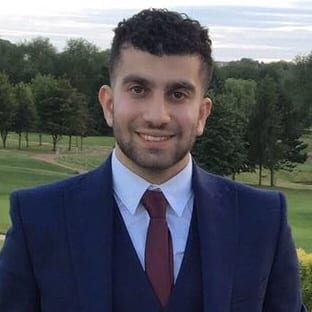Constitutions are an interesting legal phenomenon. The Oxford Dictionary defines a constitution as “a body of fundamental principles or established precedents according to which a state or other organisation is acknowledged to be governed”. They tend to be codified in a governing document, although some are unwritten. Every state has a constitution in some sense with basic truths that the government – and its citizens – are meant to abide by. Their history spans centuries and they are essential to the political governance of a state.
It goes without saying that constitutions should be designed by the citizens of the state and a legitimate government. Recent developments within the constitutional committee on Syria, though, go against such perceived wisdom. The UN has put extensive pressure on the Syrian government and the opposition to draft a constitution as a method to move forward with the political process. The idea, as well-intentioned as it may be, is fundamentally flawed, however, and demonstrates the shortsightedness of the international community.
The delegates for drafting up the new Syrian constitution will make up a “constitutional committee”. The UN has determined that the composition of that committee will be 50 members of the Syrian government, 50 members of the opposition and 50 members chosen by the UN.
READ: In bombing Idlib, the US is trying to pull together its Syria policy
Bashar Al-Assad’s government, of course, has been accused of crimes against humanity and war crimes with a submission made for the former by Syrian refugees earlier this year. There is widespread evidence to corroborate these claims, but instead of being held to account, Assad is playing a crucial role in the future direction of the state. The arsonist and the root cause of the Syrian conflict is also playing at being a fireman. There isn’t even a provisional government in place; it’s simply the same regime as before with Assad as the president of a weaker Syrian state.
![Chemical attack on Syria - Cartoon [Sabaaneh/MiddleEastMonitor]](https://i0.wp.com/www.middleeastmonitor.com/wp-content/uploads/2018/04/Syria.jpg?resize=933%2C579&ssl=1)
Chemical attack in Syria – Cartoon [Sabaaneh/MiddleEastMonitor]
Arguably the biggest flaw at issue with the Syrian constitutional committee is the lack of thought about how the Syrian people will ratify it. This returns to the point about the Assad regime. Under his rule, there will be no free or fair elections of any kind. Anything drafted will likely be forced on the Syrian people in a simple yes/no referendum. The result will almost certainly favour the regime, with more than 90 per cent of votes, no doubt, as other polls in the history of Assad dynastic rule — father and son alike — have demonstrated.
Constitutions derive their legitimacy from the citizens. A constitution that cannot be properly ratified ought to be null and void. Moreover, practically speaking, it is wildly optimistic to expect Syrian refugees and citizens in opposition-held areas to be able to vote. Even those in regime areas will very likely be subject to intimidation, and the poll results will be falsified.
READ: The safe zone deal in Syria has wider implications for the region
The Syrian people are concerned that this process will waste more time whilst blood is still being spilled. It is as if the UN is going through the motions and trying to do this for the sake of doing something to show that the global institution has not been a total failure in Syria. This deception by the UN is lost on no one and points to the systemic failures of the international community to help the Syrian people and hold the regime to account for its actions.
UN Resolution 2254 states that, “The Syrian people will decide the future of Syria”. There are various issues that need to be dealt with before the drafting of a new Syrian constitution. These include the implementation of a permanent ceasefire, the release of political prisoners and, crucially, the formation of an inclusive transitional governing body with full autonomy to work on a constitution and move forward with the political process.
It would be prudent for the UN to return to its original sentiments in any discussion on a future Syrian constitutional committee and ensure there are no external influences when the time is right to discuss a governing document; that is, when Bashar Al-Assad is no longer the president. A new constitution cannot be a priority while barrel bombs are still being dropped on Syrian citizens by the regime of which he is the head.
The views expressed in this article belong to the author and do not necessarily reflect the editorial policy of Middle East Monitor.


![Syrian President Bashar Al-Assad in Sochi, Russia on 21 November 2017 [Kremlin Press Office/Anadolu Agency]](https://i0.wp.com/www.middleeastmonitor.com/wp-content/uploads/2017/11/2017_11-21-President-of-Russia-Putin-meets-with-Syrian-President-Bashar-al-Assad20171121_2_26992374_28018657.jpg?fit=1200%2C800&ssl=1)









